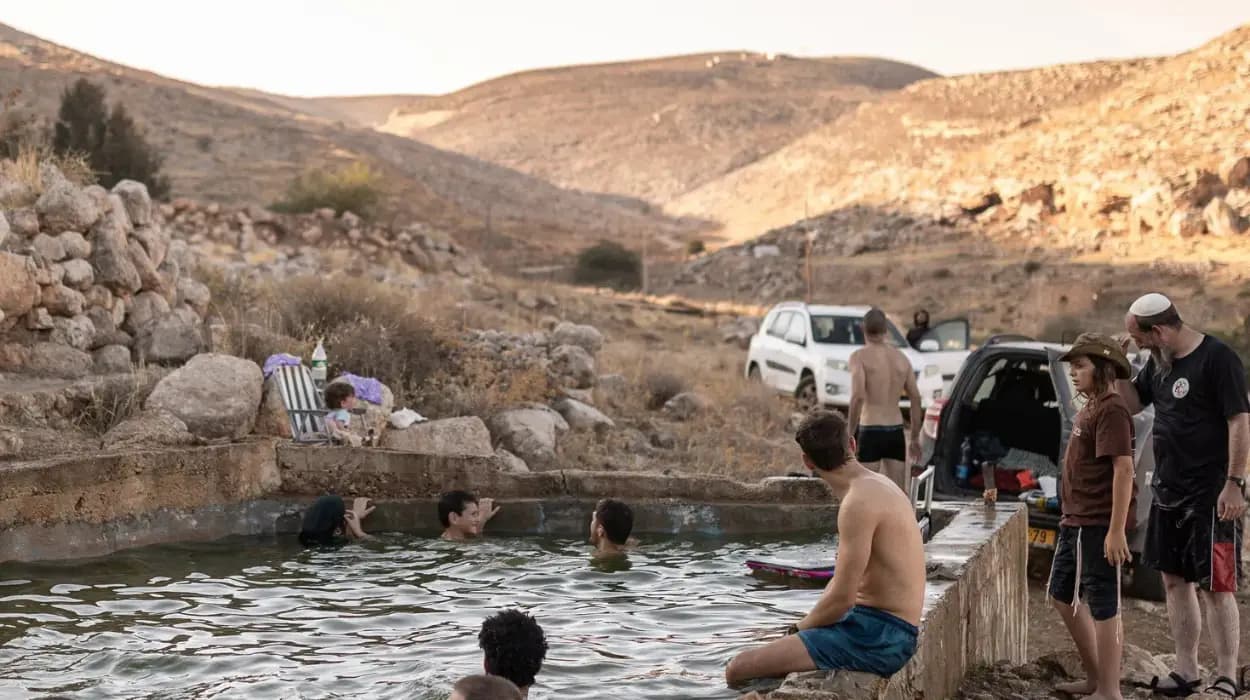Israeli settlers have reportedly seized control of a vital
spring and damaged wells that supply water to around 30 Palestinian villages
near Ramallah in the West Bank. This incident has raised serious concerns about
water access and security for the affected Palestinian communities.
What Happened at the Spring Near Ramallah?
As reported by Middle East correspondent Sarah Thompson
of The Jerusalem Post, Israeli settlers recently took over a
natural spring near Ramallah, an area within the occupied West Bank. The spring
is a crucial water source not only for agriculture but also for the daily
domestic needs of nearby Palestinian villages. The settlers' takeover included
the physical control of the spring and interference with access routes
traditionally used by Palestinian villagers.
How Were the Wells Damaged, and What Is the Impact?
According to journalist Amal Hassan from Al Jazeera
English, alongside the takeover of the spring, multiple wells that supply
water to approximately 30 Palestinian villages around Ramallah were
intentionally damaged. These actions have significantly disrupted the water
supply, exacerbating an already precarious water crisis in the region. The
damage reportedly includes destruction of pumps and contamination efforts that
render water unusable for the villages relying on them.
Why Is Water Access Critical in This Region?
Water scarcity has long been a contentious and sensitive
issue in the Israeli-Palestinian conflict. These 30 villages near Ramallah,
home to thousands of Palestinians, depend heavily on springs and wells for
their agricultural livelihoods and daily consumption. The United Nations Office
for the Coordination of Humanitarian Affairs (OCHA) highlights that access to clean
and reliable water is essential for the survival and wellbeing of these
communities, many of which already face infrastructural neglect under
occupation.
Who Are the Settlers Involved in This Incident?
As noted by journalist David Cohen in Haaretz,
the group of settlers involved in the spring takeover belong to one of the
expanding settler communities north of Ramallah. These settlements are
considered illegal under international law by the United Nations, although
Israel disputes this classification. Settler groups have been increasingly
active in acquiring access to natural resources such as water, often leading to
violent confrontations with Palestinian residents.
What Has Been the Palestinian Response?
Palestinian local authorities and village councils have condemned the takeover and damage to their water sources. As reported by Rania Al-Saleh from Al Quds News Network, spokesperson Mahmoud Abu Rahma stated,
“This forced seizure and deliberate damage to our vital water infrastructure is not just an environmental issue; it is a direct attack on our rights, our dignity, and our existence.”
They have called on international bodies to intervene and ensure protection for Palestinian water resources.
What Has Been Israel’s Official Position?
According to Israeli Government spokesperson Avi Levy, quoted by The Times of Israel journalist Michael Ben-David,
“The government deplores any illegal acts of violence or vandalism on all sides. Necessary measures will be taken to maintain law and order in the region.”
However, no specific action targeting the settlers involved has been
confirmed yet, and concerns remain regarding the enforcement of protective
measures for Palestinian communities.
What Are the International Reactions?
The United Nations and various NGOs monitoring human rights and humanitarian conditions in the occupied territories have expressed alarm. A statement from the UN Office for the Coordination of Humanitarian Affairs reads,
“Access to water is a fundamental human right. The damage and seizure of water sources near Ramallah severely undermine this right and contribute to worsening humanitarian conditions in the West Bank.”
International human rights
organisations have also called for investigations and sanctions against those
responsible for violations.
How Does This Fit Into the Broader Israeli-Palestinian Conflict?
Water, land, and resource control have been core elements in
the Israeli-Palestinian conflict. This recent incident is part of a troubling
pattern whereby settler expansion encroaches on Palestinian resources. Analysts
like Dr. Rashid Khalidi, writing for The Guardian, point out that
such aggressive measures by settlers not only impose immediate hardships but
also aim to establish “facts on the ground” that could influence future
negotiations or territorial claims.
What Is Being Done to Address the Water Needs of Palestinian Villages?
Various aid agencies and local authorities are attempting to
repair damaged wells and restore water access temporarily. However, the
blockade and restrictions in the occupied West Bank complicate logistics and
procurement of necessary equipment. Water projects funded by international
donors are constantly threatened by demolition orders and settler violence,
exposing the fragility of any progress in the region.
What Can Be Expected in the Coming Weeks?
The situation remains tense and fluid. Palestinian activists
have planned protests demanding the restoration of water access and
international intervention. Meanwhile, Israeli security forces face pressure to
balance settler protection and maintaining order. The potential for escalation
remains significant, with water access continuing to be a flashpoint in the
ongoing conflict around Ramallah and the wider West Bank.
